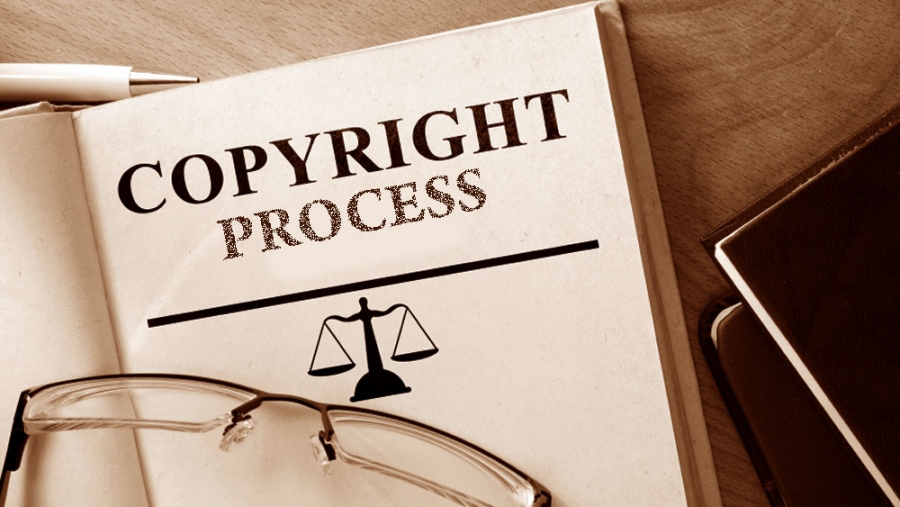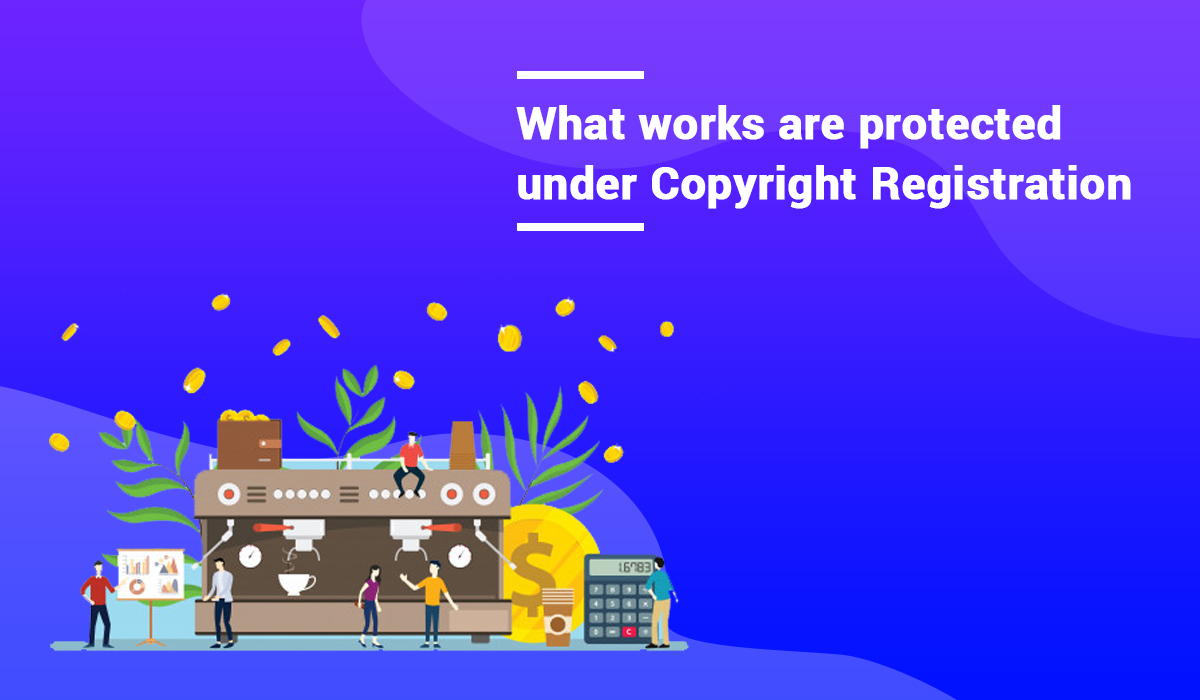Copyright Registration for Offline Business in India

Gonica Verma | Updated: Jul 02, 2019 | Category: Copyright
Creativity is present everywhere and it plays an important role in the social and economic development of the country. Creators, nowadays, are selling or leasing their creativity to the third party to make some money and build their image. But when they are transferring their creativity, they need some sort of legal protection to ensure that no one will be able to use their creativity without their consent.
So, under Copyright Act, 1957, the creator is able to protect their creativity from third party infringement. Creativity can be sold both offline and online and the risk associated with selling online is much higher than selling offline but Businesses who are operating on an offline mode also need protection against their literary work, dramatic work, sound work, etc. because once they get copied, they can be sold online without the creator’s consent. To know more about the importance of Copyright Registration for Offline Business in India, let’s proceed further,
Table of Contents
What is Copyright?
Copyright is a kind of protection given by law to the creators of any artistic work, literary work, makers of cinematography films, sound work, music work, software work, etc. against the infringement of their work by third parties. It is the bundle of rights that can be given to the creator for the publication of work, reproduction of work, sell or lease the work and communicating to the public. Overall, the Copyright gives protection to the creativity which plays a major role in the development of society and economy.
Reasons why offline businesses require Copyright Registration
There are several works that can be copyrighted in India and its business is running on an offline mode:
Literary work
Any work in the form of literature, partly or whole fact or fictitious, that can be published and sold offline in libraries, book shops, etc. Such work includes the formula, poem, theory, stories, and so many literary things. The creation of a computer program is also considered as literary work in India.
Dramatic work
Dramatic work includes the piece of entertainment, some acting forms, screenplays, dance forms, plays etc. All these can be copyrighted in India and are performing in an offline mode in theatres, stage shows, street shows etc.
Artistic form
The artistic form of work that may be copyrighted includes paintings, drawings, handicraft style, photograph, sculpture, etc. These work also be presented offline in exhibitions, fare, etc. So, they need to be copyrighted for their protection.
Sound Recording/Musical work
Sound recordings and Musical works may also be copyrighted in India. Some instrumental tone or some song related to the company, the graphical notes of a sound, etc. need to apply for Copyright Certificate so that no third party can copy this and use for their own purpose.
Cinematograph films
Any video recording that can be associated with some business entity; moving films, moving image etc are copyrighted in India. Any offline business whose identity is its moving image should copyright its moving image under the Copyright Act, 1957[1] .
Documents Required for Copyright Registration in India
Below we have enlisted the documents required for Copyright Registration in India for several works:
Artistic Work
- 2 copies of the work.
- Demand draft or Initial Public Offering.
- No Objection Certificate from Author, if the person who files the application is different.
- No Objection Certificate from the publisher, if the owner is not the publisher.
- TM-60 in case, work is being used on products or capable of being used on products.
- No objection Certificate of the person in case of his/her photo on the proposed Copyright work.
- Power of Attorney signed by the owner in case the attory has filed the application.
- In the case of deceased owner/author, No Objection Certificate from legal heirs.
Cinematography Work
- 2 copies of the work.
- Demand draft or Initial Public Offering.
- Deed of Agreement or No Objection Certificate from various copyright holders.
- No Objection Certificate from the publisher, if the owner is not the publisher.
- Power of Attorney signed by the owner, if the application has been filed through the attorney.
- In the case of deceased owner/author, No Objection Certificate from legal heirs.
Music Work
- 2 copies of the music in graphical form.
- Demand draft or Initial Public Offering.
- No Objection Certificate from Author, if the person who files the application is different.
- Power of Attorney signed by owner, if application has been filed through the attorney.
- In case of deceased owner/author, No Objection Certificate from legal heirs.
Literary/Dramatic Work
- 2 copies of the work.
- Demand draft or Initial Public Offering
- No Objection Certificate from Author, if the person who files the application is different.
- No Objection Certificate from the publisher, if the owner is not the publisher
- Power of Attorney signed by the owner if the attorney has filed the application.
- In the case of deceased owner/author, No Objection Certificate from legal heirs.
Sound Work
- 2 copies of the work.
- Demand draft or Initial Public Offering.
- Deed of Agreement or No Objection Certificate from various copyright holders.
- No Objection Certificate from publisher, if owner is not the publisher.
- Power of Attorney signed by owner, if application has been filed through the attorney.
- In case of deceased owner/author, No Objection Certificate from legal heirs.
Software Work
- 2 copies of the work.
- Demand draft or Initial Public Offering.
- No Objection Certificate from Author, if the person who files the application is different.
- No Objection Certificate from publisher, if owner is not the publisher.
- Source code/Object code at the time of inspection.
- Power of Attorney signed by owner, if application has been filed through the attorney.
- In case of deceased owner/author, No Objection Certificate from legal heirs.
Process of Copyright Registration in India for Offline business
The process of Copyright Registration in India is little difficult. However, if you apply with all the required documents and follow the steps described below, it would become simpler:
Filing application
Firstly, the applicant needs to file an application along with Demand Draft (DD) or Initial Public Offering (IPO). The applicant needs to send the application to the Registrar of Copyright in the prescribed format along with all the required documents. The applicant can also file an application online on copyright.gov.in.
Issue of Diary number
Once an application has been filed, then the applicant will be issued with Diary number. With the help of Diary number, applicants can track the status of their proposed copyright work.
Raising objections
Once the applicant has filed the application, the application will be published in newspapers, journals etc to raise objections regarding the work. It is mandatory for the applicant to wait for 30 days. If the third party will raise any objection regarding the work then, the department will send a letter to both parties and each party will be heard from Registrar. Then, the Registrar will decide according to the replies from both the parties whether to precede the application or reject it.
Inspection by examiner
If no objection raised or the registrar approves the application in case of third party objections, then the examiner will scrutinize the work to ensure that there will be no discrepancy in the application.
Registration approved or unapproved
If there will be any discrepancy found in the application and the applicant will not be answerable to that then, the authority will reject the application and if there will be no discrepancy found in the whole work and application then it will proceed further for final Copyright registration.
Benefits of Copyright registration for offline business
Public Record of the work
Copyright registration helps the owner to maintain the public records of their literary or artistic work. They can register their work under the Copyright Act, 1957 to protect their work from infringement as the law already declared their ownership towards their work.
Protection from Infringement
Copyright registration helps the owner to protect their work from infringement. If someone tries to copy or to publish the work of owner after the tenure or without the consent of owner, and then in such case, owner can sue that person and can claim damages against their work.
Buy or Lease the work
After registering the work under the Copyright Act, the owner has the right to sell or to lease their work for a definite period of time to the third party. They can also charge huge amount by selling their work to another person for lifetime. But, if the third party continues to use the owner’s work after the end of tenure then the owner can sue them.
Control to owner
Copyright registration gives full control to the owner of their creativity. Owners can use, reproduce, publish and communicate their work to the audience. Owners can also hire third parties for their publication and communication of their work.
Export and Import
Owners can export their work without any worry of infringement. They can also import their collection which cannot be imported by any other party without their consent.
Conclusion
Hence, it is clear that whether you are running your business offline or online, you need protection against your creativity. Authors may be selling books through offline stores, Artists may be performing in live theatres, program developers may be developing the only source and object code, not the full application and so many like them who are operating offline need legal protection to protect their work from infringement.














